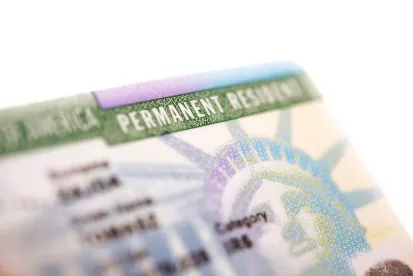On June 22, 2020, President Trump signed a proclamation suspending entry of foreign nationals in certain employment-based nonimmigrant categories, including H-1B, L-1, H-2B, and J-1. The H-1B category is used for professional-level specialty positions, L-1 is for managers, executives, and specialized knowledge employees of international companies, H-2B is for certain nonagricultural workers, and J-1 is for au pairs, medical residents and other interns, teachers, and summer work travel programs. Family members of foreign nationals in H-1B, L-1, H-2B, and J-1 status are also prohibited from entering the U.S. in derivative status. The proclamation became effective at 12:01 a.m. on June 24, 2020, and will be in effect through the end of the year.
If a foreign national is currently in the U.S. in one of these nonimmigrant statuses, the proclamation will not affect their current nonimmigrant status, or the ability to renew that status from within the U.S. However, if any foreign national in H, L, or J status is abroad on or after June 24, 2020, and does not have a visa in their passport issued prior to June 24, 2020, they will not be able to return to the U.S. The proclamation may be particularly vexing for those with H or L approvals who are outside the U.S. and have been waiting for consulates to re-open after their closings around the world due to COVID-19. Under the proclamation, those people will not be able to enter the U.S. unless this proclamation is lifted.
The proclamation does not apply to anyone who has a travel document other than a visa, including an advance parole document that is valid on the effective date of the proclamation. The proclamation also does not apply to agricultural workers or individuals who “are involved with the provision of medical care to individuals who have contracted COVID-19 and are currently hospitalized.” We will have to wait and learn how that narrowly-defined health care exception is interpreted at the consulates and ports of entry.
The proclamation further orders the Secretary of Homeland Security to “consider” making regulations changing the H-1B program to ensure that H-1B aliens do not “disadvantage U.S. workers.”
The proclamation also continues President Trump’s April suspension on the issuance of immigrant visas (or “green cards”) at U.S. consulates. Under this week’s proclamation, U.S. consulates may not issue green cards, except for spouses and children of U.S. citizens. This means that foreign nationals outside the U.S. who wish to consular process for their green cards will have to continue to wait outside the U.S. The proclamation does not apply to spouses or children of U.S. citizens, so presumably consular processing of green cards for spouses and children of U.S. citizens could continue, once consulates open again after COVID-19 related closings.




 />i
/>i

